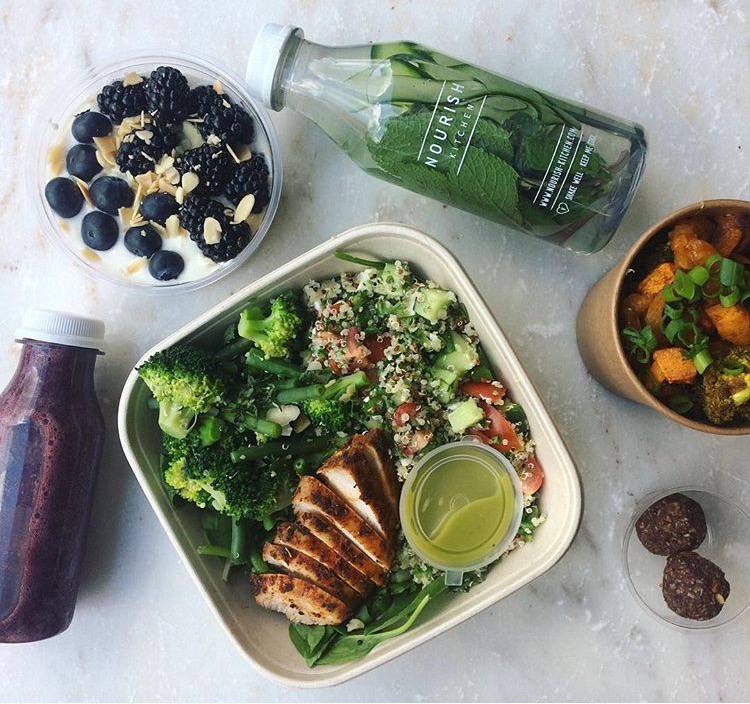
Nutritional Therapist and Naturopath Ruth Sharif has shared with us her comprehensive guide to nailing your pre- and post-workout food.
When it comes to exercise and nutrition, we are bombarded with conflicting information and it is difficult to know exactly what we should be doing to get the best results.
Whilst some advocate carbo-loading before a workout, others point towards protein shakes and electrolytes. So what should you eat that will boost your performance whilst exercising but won’t compromise the hard work you have put in on your spin class and negate the fat burning benefits?
In general, the premises for a nutritionally sound diet are similar, whether you are training or not.
Aim for a diet that is nutrient dense, full of antioxidant rich vegetables and fruit, and critically, has a low impact on blood sugar levels (low glycaemic index or GI foods).
Regulating blood sugar ensures we optimise not only our body composition and energy levels, it also impacts mood and hormone balance.
Having protein with each meal or snack reduces the blood sugar impact and choosing “slow” or low glycaemic carbs that release energy slowly as well as including healthy fats are key to getting this right.
When it comes to the specifics, your exercise goals will determine the balance between the different food groups. If your focus is on endurance or training for an event, carbohydrates and to some extent carb loading will be a more significant part of your programme. If on the other hand, your aim is to optimise fitness levels and body composition, your nutrition should be tailored likewise.
Pre-workout fuel
To eat or not to eat?
When it comes to pre-workout fuel, it’s important to understand your body and how it best functions. Avoiding food pre-workout may work if you are training for no more than an hour but there is no point starting off a session with insufficient fuel in the tank and running out of steam halfway through! A good option is a light snack containing a small amount of protein and carbohydrate about 30-60mins before exercise. This could be a piece of fruit and some nuts or a protein/berry shake, which is easily digestible.
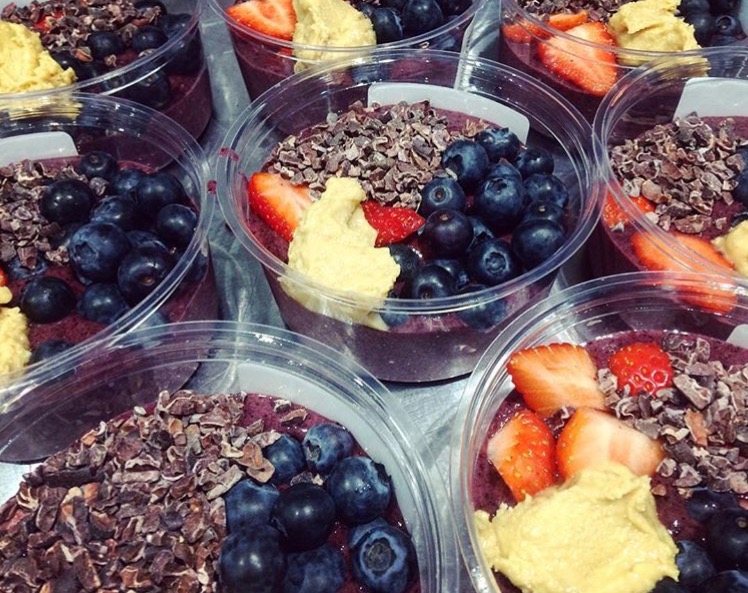
If your aim is to lose body fat, limiting carbohydrate intake before training can be helpful as your body works on the “last in, first out “ premise. In other words, it uses the carbs you have just eaten as the primary source of fuel when exercising rather than body fat. If we limit carbs pre-exercise, we can help train our body to use stored fat as fuel.
For those with very little appetite first thing, a shot of good coffee (not instant) with a spoonful of butter or coconut oil is a good option for fat burning - as long as you are not exercising for more than an hour. It can boost metabolism by up to 20%. But do make sure you have a “recovery meal” within 30-60 minutes of completing your workout.
Many people try to avoid carbs these days, but for those doing endurance /performance training, they are the most efficient form of fuel for our muscles. Good choices are low GI carbs such as brown/black rice, quinoa, vegetables and these should be combined with protein and consumed ideally a couple of hours before an intense training session.
What to avoid eating before a workout?
Sugar! It disrupts blood sugar control and hence our fat burning potential. The energy boost you feel from sugar may be immediate but it is unfortunately short-lived. Sugar also feeds the “bad” bacteria in our gut, causes inflammation and impacts our immunity.
Too much fibre. Whilst fibre is an invaluable part of our nutrition needs, having a fibre rich meal before exercise may cause bloating as it is actually digested in the colon and this can cause discomfort when exercising
A large meal: sounds obvious but digesting food needs proper blood flow and exercising pulls blood away from your digestion. So give yourself a few hours after a heavy meal so your stomach is empty and nutrients are fully digested and available for you to use.
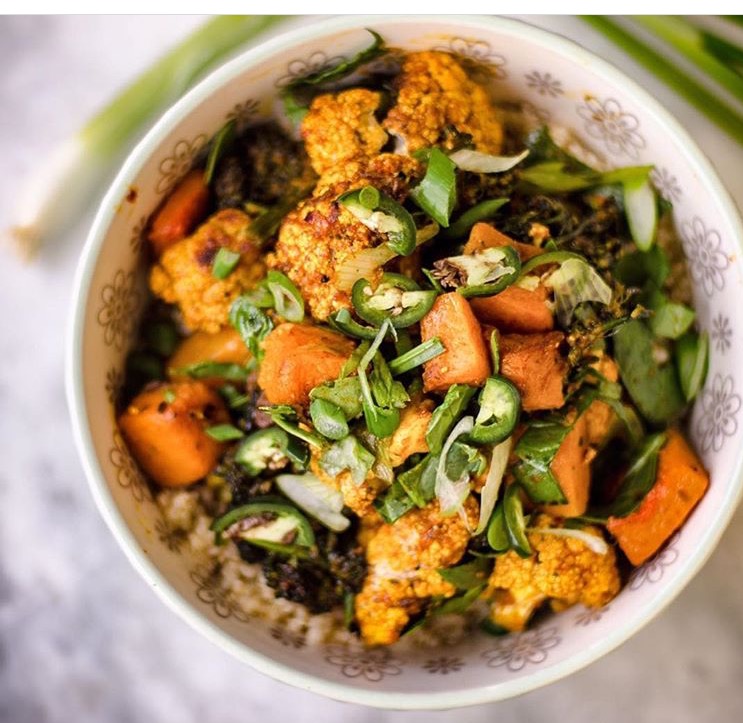
What to eat after a workout
Don’t skip recovery nutrition! Some people think they will continue to burn more calories if they do, but this is not the case. Post-workout nutrition actually raises your metabolism and calorie burn, slows muscle-protein breakdown and increases lean muscle building. Muscles use glucose most effectively just after exercise so it’s the ideal time to eat.
Post-session, the focus is on re-fuelling and repairing muscles. When training, we create tiny tears in our muscles, which we experience as “DOMs” (Delayed Onset Muscle Soreness) and protein is key to repairing these. I suggest you get something in your system as soon after training as possible (like a protein shake or bar). Within the next 90mins, have a balanced meal, with a combination of protein, low GI carbohydrates and healthy fats.
Examples of low glycaemic carbs include veggies, fruit (although remember tropical or dried fruit are high in sugar) sweet potato, quinoa and brown rice/spelt or buckwheat. Combine with eggs, natural yogurt (goats or sheep easier to digest), good quality meat or fish. Including protein with each meal regulates blood sugar and therefore body composition. You are more likely to feel full for longer and have fewer cravings.
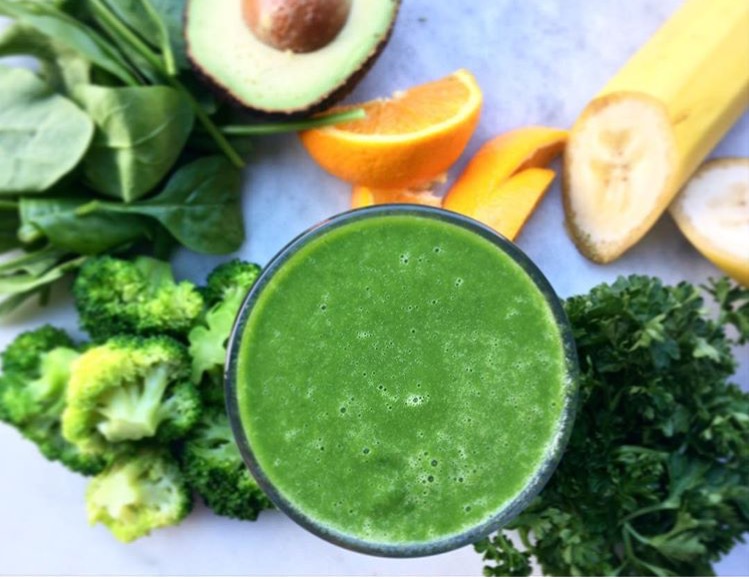
Stay hydrated! A mere 2% level of dehydration in the body equates to about a 10% decrease in performance. Dehydration not only makes you feel fatigued, it can also contribute to cramping. Drink water throughout the day and during your workout (diluted coconut water if you sweat a lot for its natural electrolytes).
Avoid recovery or sports drinks, which typically contain sugar or sugar substitutes (often artificial ingredients/sweeteners). Instead make your own post workout drink – try a blend of coconut water, a “clean” whey protein powder, some berries and a magnesium supplement. This will cover every base for you after a hard session.
Top tip! Adding acidic foods like lemon juice or vinegar to your meal can reduce the overall Glycaemic Index of blood sugar impact.
Ruth Sharif is a nutritional therapist and naturopath, practising in SW London. If you have any questions or would like to book an individual consultation with Ruth, please email her on ruth.sharif@me.com or check out her website www.ruthsharif.com

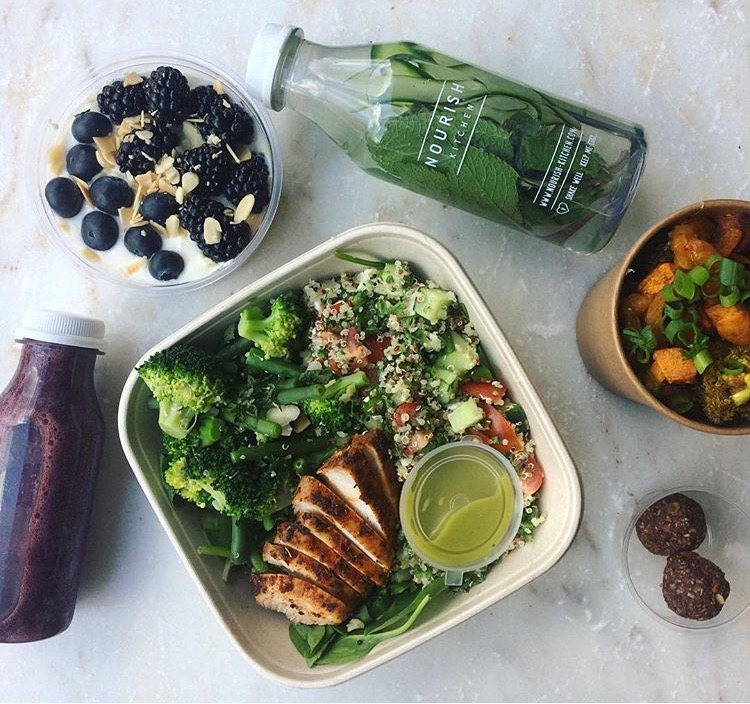
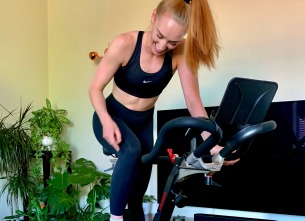



COMMENTS (0)
Be the first to comment!
Please login to comment